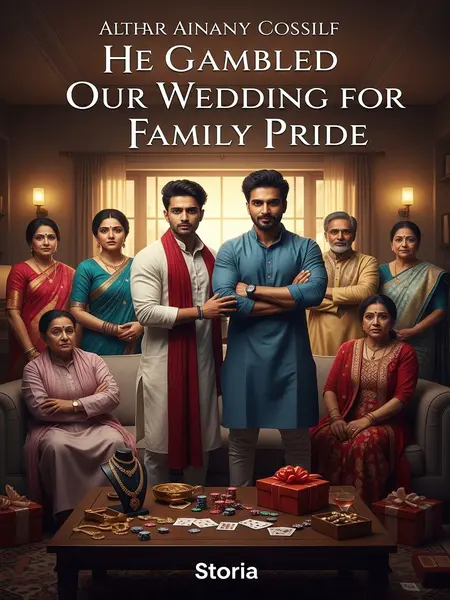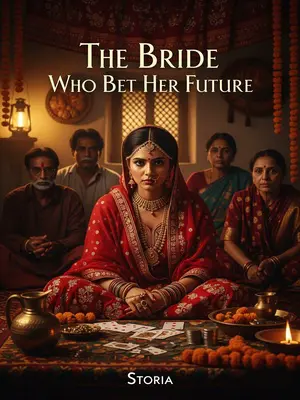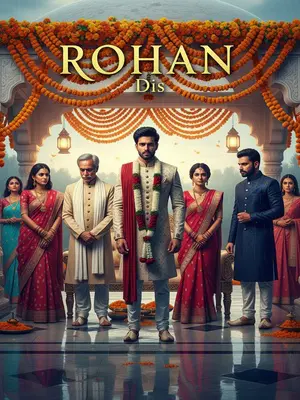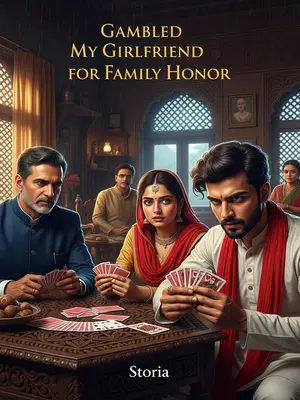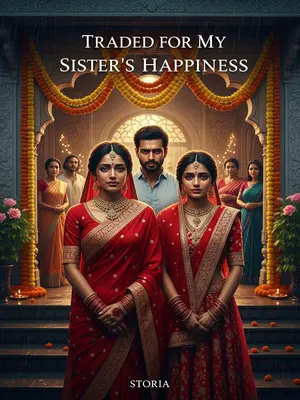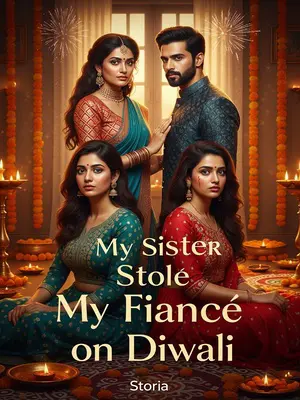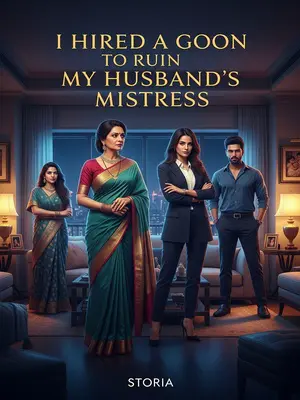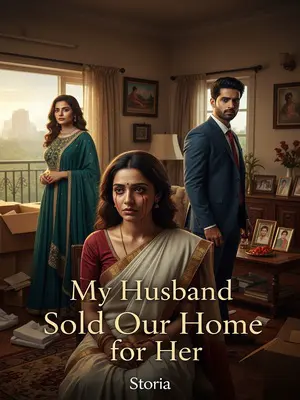Chapter 2: All In – When Izzat Is Everything
At that moment, he couldn’t decide. My uncle urged him, “Bas kar ab. Dikh nahi raha, darr nahi raha woh?” Uncle’s voice was raw, almost desperate. But for once, his son wasn’t listening.
My cousin scowled, “Agar fold karu toh Audi, tees lakh sab gaya. Bluff kar raha hai.”
He looked around for support, but everyone’s faces were blank. The weight of his own arrogance was crushing him now.
Usually, relatives love to chime in with advice. But now, silence reigned. This was bigger than any TV serial.
Because in Teen Patti, until the last card is shown, no one knows who’s bluffing.
He watched everyone, desperate. All night he’d raised the stakes—if he folded now, he’d lose face forever.
The fear of being called a coward is worse than losing money.
Finally, he called his wife. “Idhar aao.” His voice had lost its edge.
She walked over slowly, eyes on the table’s pile of keys, gold, cash. Like walking into a battlefield.
He whispered to her, asking her to put up her ‘three golds’—heavier than my fiancée’s.
She hesitated, lips tight. Her gold gleamed—South Delhi style. But she refused to remove it.
His face darkened. He quickly showed her his cards. After a glance, her face lit up; she removed all her gold and put it on the table.
She gripped the cards, eyes shining with hope. Suddenly, she was on his side, greed overtaking fear.
She smiled, “Aakhri tak khelenge. Baad mein mat kehna, sab gawah hain—jo peeche hatega, usko bad-dua lagegi.” Her words carried the weight of superstition.
I asked, “Cards dikhayenge?” My voice was cold, but she was only more eager.
She chirped, “Kyun dikhayein? End tak chalenge!” Nani muttered a prayer, shaking her head.
With no chips left, she took off her diamond ring and dropped it with a flourish. “Ye ring paanch lakh ki hai!”
I shook my head. “Diamond ring ka value sirf hazaar.”
She glared, “Tumhe pata bhi hai, Tanishq hai!”
I shrugged. “Bhabhi, brand se kuch nahi hota. Mere liye hazaar ka hi hai.”
She fumed, but my cousin cut her off, “Main ghar bhi laga deta hoon.”
A gasp swept the room. Ma clutched her pallu tighter, a prayer on her lips.
Uncle shouted, “Pagal ho gaya hai? South Delhi ka ghar hai, ek crore ka!”
My cousin sneered, “Teen Patti ka rule hai—bet kam nahi ho sakta. Takkar lega?”
He dared me to say no. I fell silent. I simply couldn’t match that much.
The stakes pressed down on me. My fiancée squeezed my hand.
He saw my struggle and laughed, patting my shoulder. “Bola tha na, kuch cheezen bas out of your league hoti hain.”
He taunted, “Main isliye bully kar raha hoon, kyunki tu match nahi kar sakta. Main stakes badha sakta hoon, tu chahe jaan bhi laga de, nahi kar payega.”
His wife sneered, “Follow karega ya fold? Nahi toh nikal ja.”
Nobody spoke for me. This is the unfairness of the table—the rich can always up the ante, the poor suffocate under the weight.
Each time you match, the pressure doubles. The humiliation sticks with you.
His words echoed in my head. I almost folded. But the fire inside wouldn’t let me.
I looked at my fiancée and my dad. Papa’s face was pale; Ma wiped her eyes. He looked broken.
Suddenly my fiancée said, “Mere parents ka ek ghar hai. South Delhi nahi, par pachaas lakh ka toh hoga.”
Her calm stunned the room. Murmurs spread.
I grabbed her hand. “Nahin. Wedding flat, teen gold sab mera. Agar haara, hum khatam. Tumhare family ko kyon laun beech mein?”
My voice trembled. She squeezed my hand, her eyes fierce.
She said, “Aaj dar gaye toh zindagi bhar nahi uthenge. Mujhe bharosa hai, tum bewakoofi nahi karoge.”
Her faith steadied me. For the first time, I felt I could stand tall before my cousin.
I trembled—not from fear, but happiness. My future wife’s loyalty was as strong as a mangalsutra, as sacred as Lakshmi puja.
I knew I would win. But I had to keep up the act, for my cousin’s sake.
But for her, it was real. She didn’t know my cards, but still stood with me.
That kind of faith, everyone in the room could feel.
My cousin mocked, “Ab bhi kam hai. Ek lakh ka gap hai. Match karega kaise?”
He leaned in, lips curled in triumph.
I took a deep breath. “Hamare gaon ki zameen acquire hone wali hai. Mummy, Papa, honewali biwi—chaar log. Jab compensation aayega, sab tere naam.”
Papa’s eyebrows shot up. Land acquisition is a gamble itself, but I had no choice.
His wife laughed, “Ye Mumbai nahi hai. Chhote gaon mein chhe lakh milenge, abhi bhi char lakh kam.”
She turned to my cousin, “Main nahi keh rahi, par yeh log sab kuch jod ke bhi match nahi kar sakte.”
My cousin shrugged, “Izzat milti hai, khud bhi gawate hain. Nahi match kar sakte toh fold karo.”
He sipped water, eyes never leaving mine.
Uncle, now sure I’d lost, relaxed and lectured Papa, “Tumhara beta apni aukaat bhool gaya. Ab sab kuch gaya.”
The elders murmured agreement.
Papa stood pale, swallowing hard. “Kya chahiye tumhe? Sab kuch daav pe laga diya?”
He looked ready to cry. Ma wiped her eyes, silent.
I said nothing, just scrolled my phone, applying for loans on every app I could.
The screen’s blue glow lit my face. Sometimes, desperation is all you have.
Finally, I put my phone before my cousin. The balance: forty lakh.
The number shone bright. Murmurs grew. Someone whistled.
He was stunned. “Itna credit limit kaise?”
He snatched the phone, gaping. Even he couldn’t believe it.
I told him—eight platforms, all vehicles as collateral. Yeh shaadi ka paisa tha, par ab kaam aa gaya.
His arrogance wavered.
He laughed, lighting a cigarette. “Online udhaar le ke mere saath khel raha hai? Nahi chuka paya toh zindagi barbaad.”
He lit the cigarette, flame burning bright. “Janta hai kya risk hai?”
I said, “Mujhe pata hai. Main aakhri tak khelne aaya hoon.”
The words hung in the air. No one dared interrupt.
He asked, “Sacchi? Mere saath doobega?”
He exhaled smoke, his face shadowed.
I asked quietly, “Jab mere Papa ne cigarette jalayi, tumne haath kyun nahi lagaya?”
The silence that followed was deafening.
Papa rushed over, grabbing my arm. “Bhaiya bada aadmi hai—bas kar. Zarurat nahi hai.”
His voice was desperate. He was torn, unable to pick sides.
My cousin suddenly roared, “Haan, kiya tha!”
He slammed the table, voice echoing. His anger was naked, raw.
Papa’s face drained of colour. “Itne log hain, thoda toh izzat do…”
His words trailed off. The elders shifted, uneasy.
My cousin pointed at Papa, shouting, “Tera beta hi shuru kiya tha. Kya izzat hai teri? Agar mere Papa tera bhai nahi hota toh main aata bhi nahi. Shukr mana, cigarette jalane diya. Bhikhmange!”
Each word was a slap. The air crackled with tension. The kids looked ready to cry.
Papa hung his head, shoulders shaking. I clenched my fists, anger burning.
Uncle pretended to scold, “Bade buzurgon se aise baat karte hain? Mat suno isko, nasha chad gaya hai. Hamesha dikhata rehta hai, paisa mil gaya toh kya hua?”
He winked at my cousin, like it was all a joke.
The hypocrisy cut deep. This was about more than cards—it was about family, power, respect.
My cousin slammed the table. “Sab kuch lagana hai? Chalo, cards dikhao!”
He snatched his cards, hand shaking. The room held its breath.
He reached for the cards, but I asked, “Kab kaha maine, cards dikhane hain?”
He froze, stunned. Even the elders were confused.
For a moment, the world stopped. Only my cousin’s heavy breathing filled the silence.
He stared. “Abhi bhi nahi dikhayega?”
I shook my head. “Nahi.”
I folded my arms, done with his rules.
This is Teen Patti’s scariest part—whoever cracks first, pays more. We’d already bet so much. To show now meant another one and a half crore.
That number hung over us like a thundercloud.
I shrugged. “Agar himmat nahi hai, toh tu dikhade. Pehle bet laga.”
My cousin’s fingers drummed on the table.
He glared, furious. “Trick kar raha hai. Main match bhi karu, tu next round nahi kar payega. Tu chahta hai main show karu aur fold ho jaun.”
His words tumbled out, desperate.
I said, “Jo sochna hai socho. Main nahi dikhane wala. Nahi match kiya, toh fold maana jayega.”
The family watched, breathless. No one dared interrupt.
His wife got anxious, “Itna besharam kaise ho sakte ho? Cards dikhado! Kyon nayi bet lagwa rahe ho?”
She was almost in tears. I only glanced at her, silent.
The more she lost control, the more embarrassing it became. She realised, biting her lip.
My cousin’s breathing was ragged.
Finally, he gritted his teeth. “Theek hai, factory laga deta hoon. Ek crore pachaas lakh.”
The room gasped again. His wife tried to stop him, frantic, “Kya kar rahe ho? Woh sirf bluff kar raha hai!”
She tugged his sleeve, but he shrugged her off.
He snapped, “Ab peeche hata toh sab kuch gaya.”
She slapped the table, “Kya pata teen Kings ya teen Aces hain?”
He shot back, “Agar fold kiya, aur pata chala bluff tha?”
She broke down, “Koi sab kuch bluff pe nahi lagata!” She looked at me, finally realising how serious I was.
He shook his head, “Tum nahi samjhogi. Bas chup raho.”
I looked at him. He was right—Teen Patti is a game of nerves. Sometimes, people go all-in with nothing, just for the drama.
But this time, the real cards were mine. He was the one who started this, raising the stakes with his car keys.
The silence now was heavier, but somehow freeing. I pressed my three Kings to my chest, feeling the weight of every eye in the room. In Teen Patti, luck matters—but tonight, so did izzat.
As my cousin’s wife tried to pull his arm back, and the last bet hung in the air, an elder’s trembling voice finally broke through: “Bas, ab ho gaya. Yeh game yahin khatam. Aur koi daav nahi—parivaar sabse pehle aata hai.”
The words hung in the air, a fragile peace settling, but the scars of this night—of pride, loyalty, and wounds old and new—would take longer to heal.
